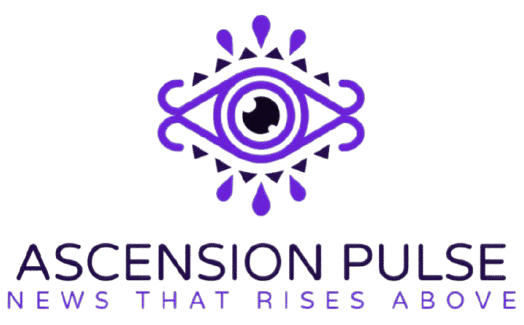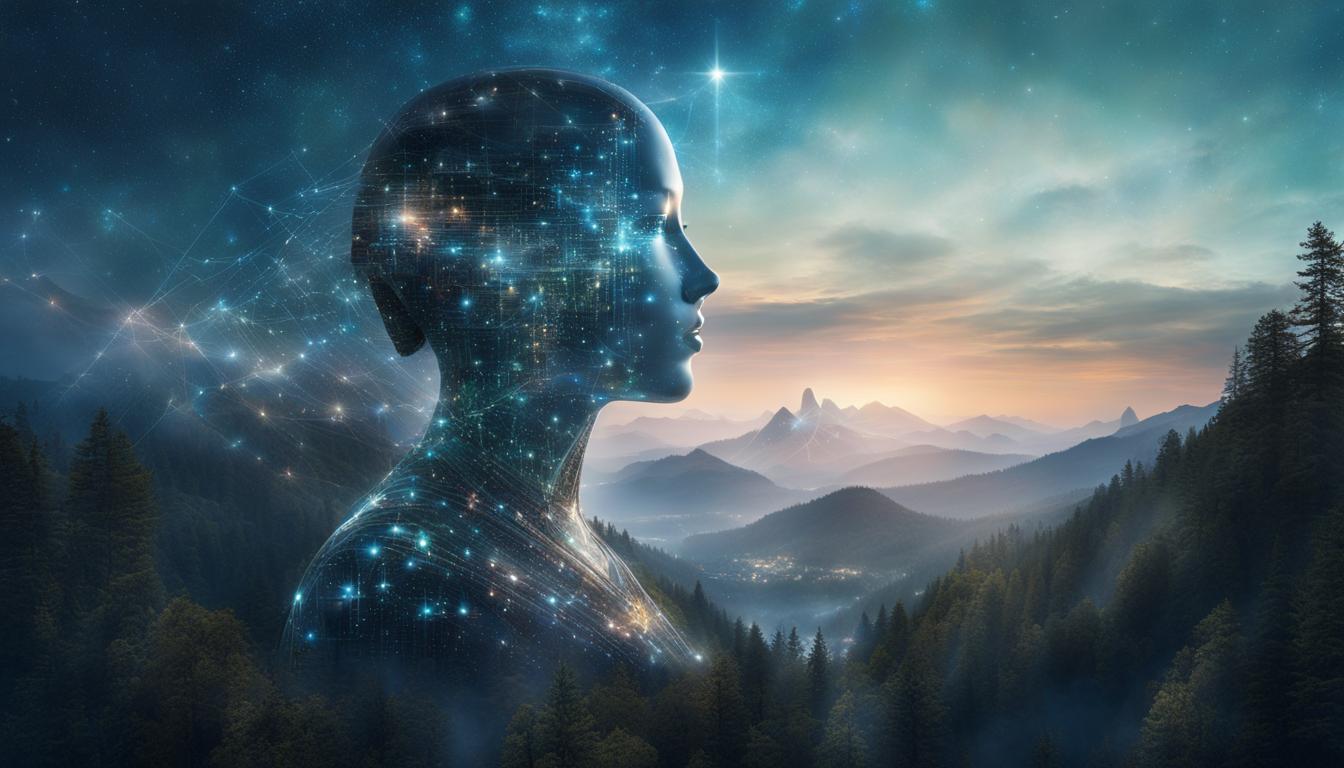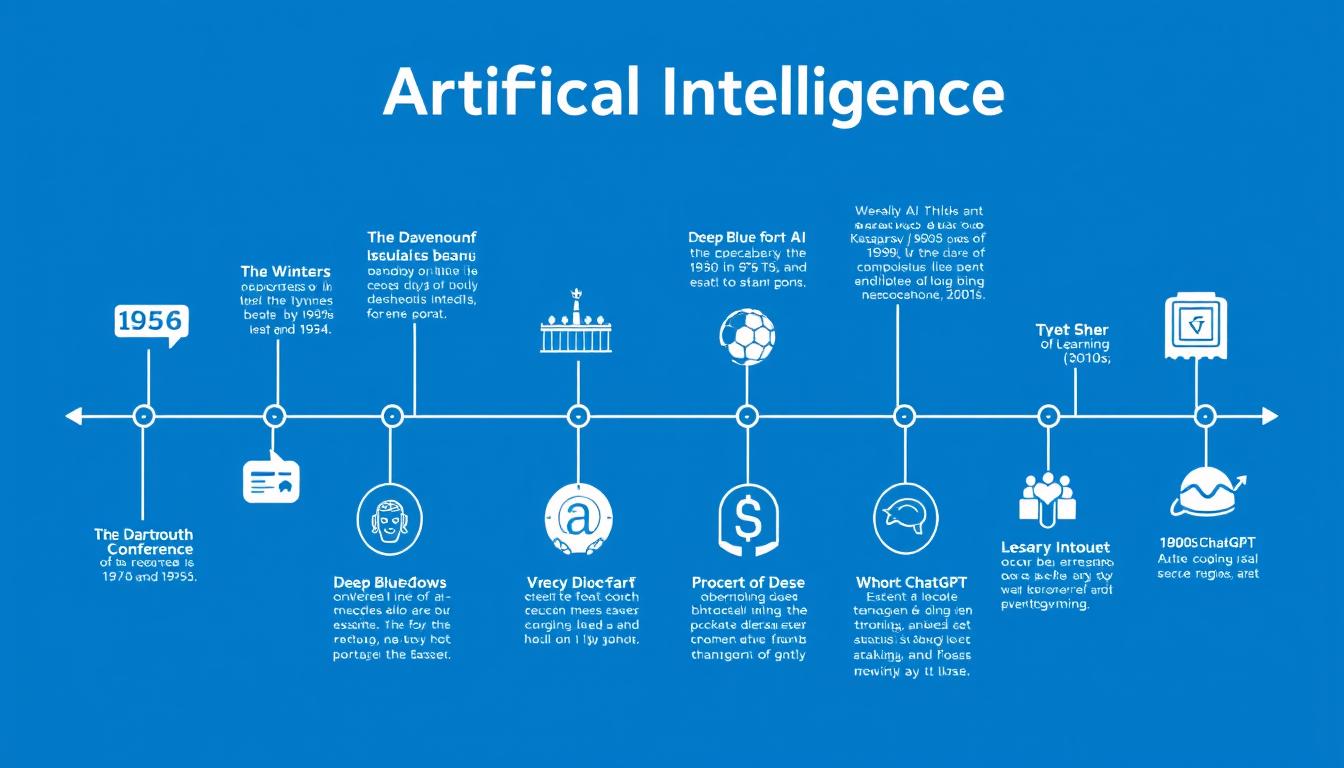
The Historical Evolution of the Age of AI
The evolution of artificial intelligence from theoretical concept to transformative technology
The foundations of artificial intelligence were laid in the mid-20th century. The term “artificial intelligence” was first coined at the Dartmouth Conference in 1956, where pioneers like John McCarthy and Marvin Minsky established AI as a formal academic discipline. Early optimism fueled significant funding and research, but technical limitations led to the first “AI winter” in the 1970s when progress stalled and investments dried up.
The 1980s saw a resurgence with expert systems, but another AI winter followed in the 1990s. The real breakthrough came in the early 2010s with the convergence of three critical factors: big data, improved algorithms, and unprecedented computing power. This perfect storm created the conditions for the current Age of AI we’re experiencing today.
As computer scientist Andrew Ng aptly described it, “AI is the new electricity,” drawing a parallel to how electricity transformed industries in the early 20th century. Today’s AI revolution is similarly reshaping every sector of the economy and society at large.
Current Applications in the Age of AI
Healthcare Revolution
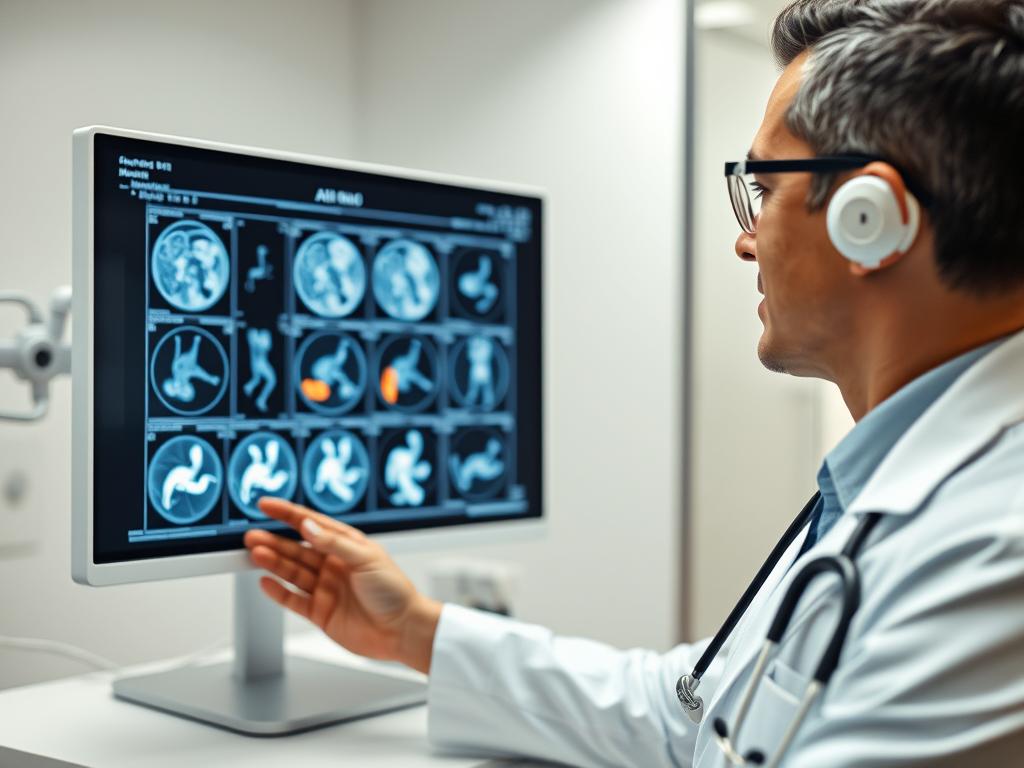
The healthcare sector has embraced artificial intelligence to improve diagnostics, treatment plans, and patient outcomes. AI algorithms now analyze medical images with accuracy rivaling or exceeding human specialists. For example, Google Health’s DeepMind developed an AI system that can detect over 50 eye diseases from retinal scans with 94% accuracy, enabling earlier intervention and treatment.
“AI won’t replace doctors, but doctors who use AI will replace those who don’t.” – Dr. Eric Topol, Founder and Director of the Scripps Research Translational Institute
Case Study: AlphaFold
DeepMind’s AlphaFold represents one of the most significant scientific breakthroughs in the Age of AI. This system solved the 50-year-old protein folding problem, predicting protein structures with unprecedented accuracy. This advancement promises to revolutionize drug discovery, potentially reducing development timelines from years to months and enabling treatments for previously intractable diseases.
Financial Services Transformation
In finance, AI powers algorithmic trading, fraud detection, risk assessment, and personalized banking experiences. Machine learning models analyze vast datasets to identify patterns invisible to human analysts, enabling more accurate predictions and faster decision-making. Financial institutions using AI-powered fraud detection systems have reduced false positives by up to 60% while improving actual fraud detection rates.
Creative Industries
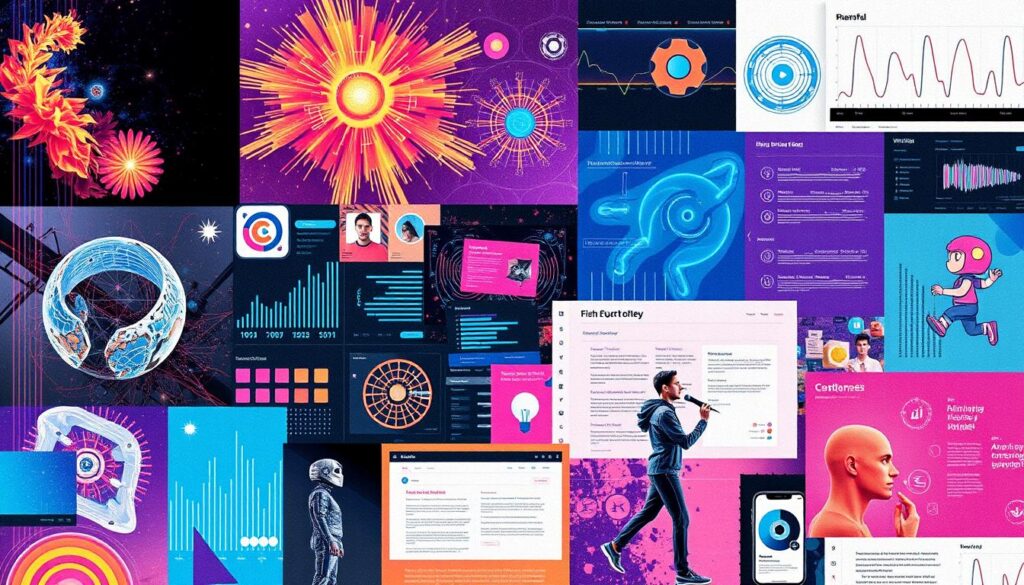
The creative landscape has been dramatically altered by generative AI tools. Artists, writers, musicians, and filmmakers now collaborate with AI systems to explore new creative possibilities. Tools like DALL-E, Midjourney, and Stable Diffusion generate images from text descriptions, while platforms like ChatGPT assist with writing and creative ideation. These technologies don’t replace human creativity but extend creative capabilities and open new avenues for expression.
Ethical Debates in the Age of AI
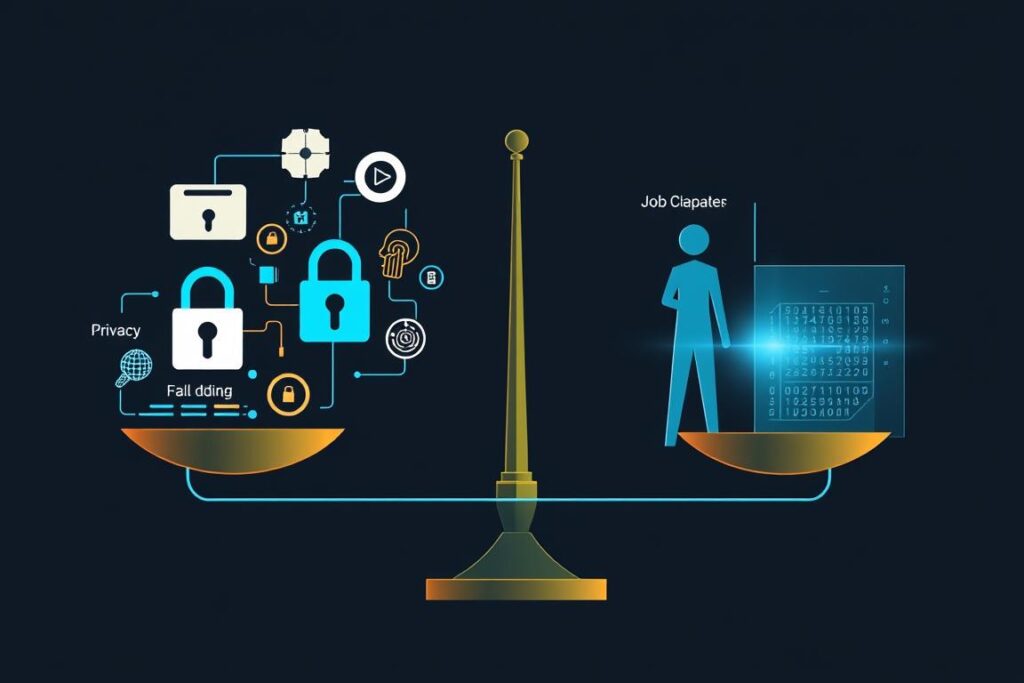
Job Displacement and Economic Impact
One of the most pressing concerns in the Age of AI is its impact on employment. While automation has historically created more jobs than it eliminated, the pace and breadth of AI-driven automation present unprecedented challenges. A McKinsey Global Institute report estimates that up to 800 million jobs worldwide could be automated by 2030, requiring massive workforce transitions.
However, AI is also creating entirely new job categories. Roles like prompt engineers, AI ethics officers, and human-AI collaboration specialists didn’t exist a decade ago. The key challenge lies in managing the transition and ensuring workers can develop skills relevant to an AI-augmented economy.
Algorithmic Bias and Fairness
AI systems learn from historical data, which often contains embedded societal biases. Without careful design and oversight, these systems can perpetuate or even amplify existing inequalities. For example, facial recognition systems have demonstrated significantly higher error rates for women and people with darker skin tones, raising serious concerns about their deployment in critical applications like law enforcement.
“The biggest risk is not that AI will develop a will of its own, but that it will follow the will of people who establish its goals without adequate moral guidelines.”
Privacy and Surveillance
The data hunger of AI systems raises profound privacy concerns. Advanced facial recognition, voice analysis, and behavioral prediction capabilities enable unprecedented surveillance possibilities. The tension between leveraging data for beneficial AI applications and protecting individual privacy rights represents one of the central ethical dilemmas of our time.
Benefits of AI Development
- Accelerated scientific discovery
- Improved healthcare outcomes
- Enhanced productivity and economic growth
- Personalized education and services
- Environmental monitoring and protection
Ethical Concerns
- Job displacement and economic disruption
- Algorithmic bias and discrimination
- Privacy erosion and surveillance
- Concentration of power in tech companies
- Autonomous weapons and security risks
Emerging Trends in the Age of AI
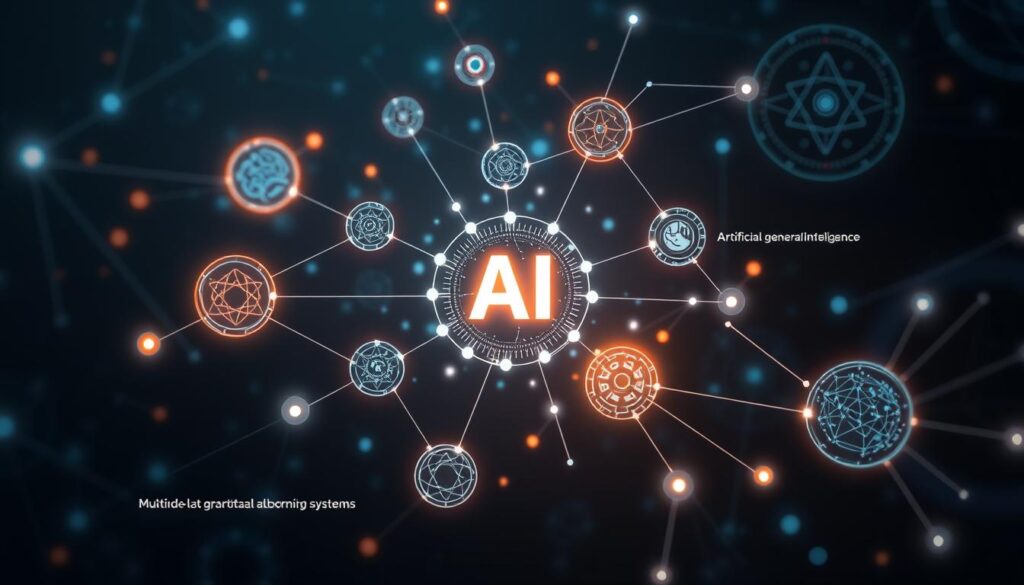
The Path to Artificial General Intelligence (AGI)
Current AI systems excel at specific tasks but lack the generalized intelligence humans possess. The pursuit of Artificial General Intelligence (AGI)—AI that can understand, learn, and apply knowledge across domains like a human—represents the field’s most ambitious goal. While estimates vary widely, some experts believe we could achieve early forms of AGI within the next decade.
OpenAI’s Sam Altman has outlined a phased approach to AGI development, beginning with narrow AI and progressing through general intelligence aligned with human values, human-AI collaboration, and eventually superintelligence. This progression raises profound questions about control, alignment with human values, and the nature of intelligence itself.
| Characteristic | Narrow AI (Current) | General AI (Future) |
| Domain Expertise | Specialized in single domains | Functions across multiple domains |
| Learning Capability | Requires specific training data | Can learn from minimal examples |
| Adaptability | Limited to programmed scenarios | Adapts to novel situations |
| Reasoning | Pattern recognition and statistics | Causal reasoning and abstraction |
| Self-Improvement | Requires human intervention | Can improve its own algorithms |
Quantum Computing and AI Integration
The integration of quantum computing with artificial intelligence promises to revolutionize the field. Quantum computers can process certain types of problems exponentially faster than classical computers, potentially enabling AI systems to tackle currently intractable challenges. Areas like drug discovery, materials science, and complex optimization problems could see dramatic breakthroughs when quantum-powered AI becomes practical.
Case Study: ChatGPT
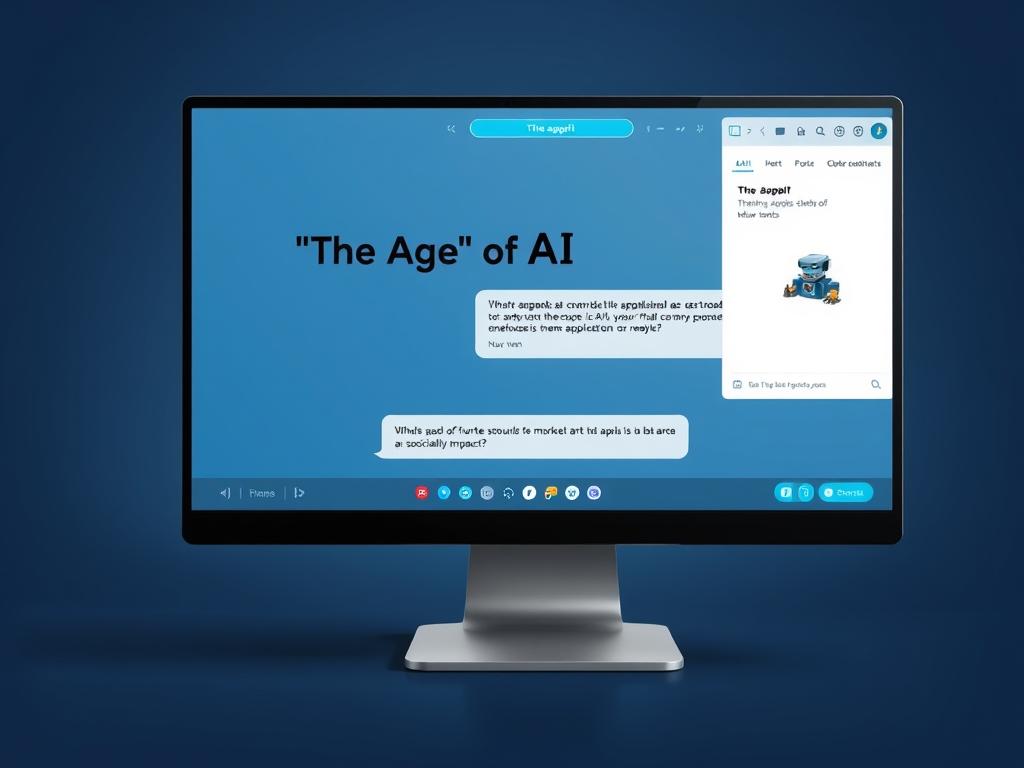
OpenAI’s ChatGPT represents a watershed moment in the Age of AI, demonstrating unprecedented natural language capabilities. Released in November 2022, it gained over 100 million users within two months, becoming the fastest-growing consumer application in history. ChatGPT’s ability to generate human-like text, explain complex concepts, and assist with creative tasks has transformed public perception of AI’s capabilities and potential.
The rapid evolution from GPT-3 to GPT-4 demonstrated significant improvements in reasoning, factual accuracy, and safety. This progression illustrates the accelerating pace of AI advancement and offers a glimpse of future capabilities as these models continue to improve.
Multimodal AI Systems
The next generation of AI systems will seamlessly integrate multiple forms of data—text, images, audio, video, and more—into unified models. These multimodal systems will better mirror human perception, which naturally combines different sensory inputs to understand the world. Early examples like GPT-4V (Vision) demonstrate the potential of these approaches to create more capable and versatile AI systems.
Societal Adaptation Strategies for the Age of AI
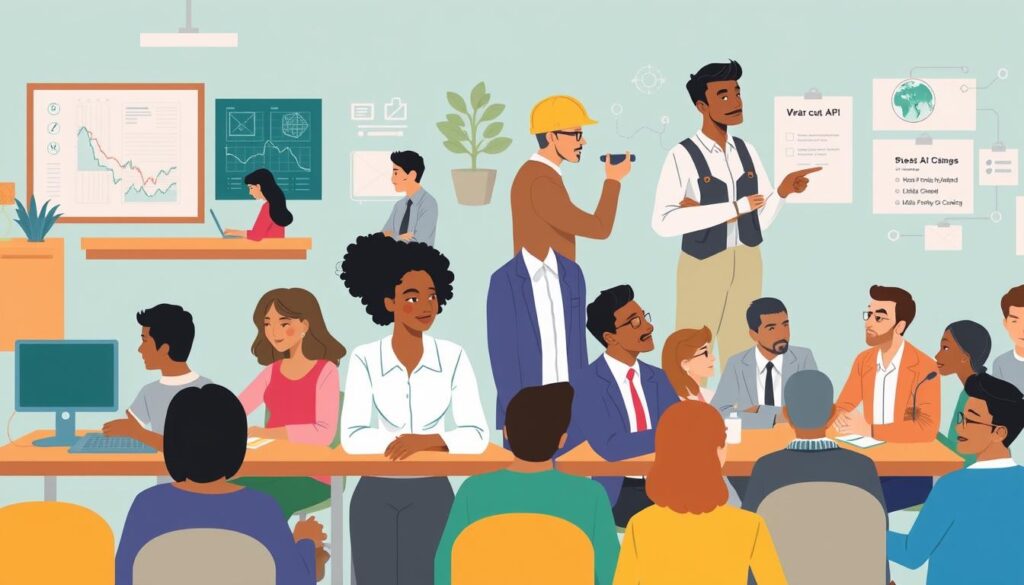
Education and Workforce Development
Adapting to the Age of AI requires fundamental changes in education and workforce development. Educational systems must evolve to emphasize uniquely human skills like creativity, critical thinking, emotional intelligence, and ethical reasoning—areas where humans will continue to complement AI capabilities. Lifelong learning will become essential as technological change accelerates.
Companies like Amazon, IBM, and Google have launched major reskilling initiatives, investing billions to prepare their workforce for AI-augmented roles. Governments worldwide are also developing national AI strategies that include substantial workforce development components.
Governance and Regulation
Effective governance frameworks for AI must balance innovation with safety and ethical considerations. The European Union’s AI Act represents the world’s first comprehensive regulatory framework for artificial intelligence, categorizing AI applications based on risk levels and imposing corresponding requirements. The United States, China, and other major economies are developing their own approaches to AI governance.
“We need to ensure that this potentially transformative technology is aligned with human values and deployed for the benefit of humanity.”
Case Study: Autonomous Vehicles
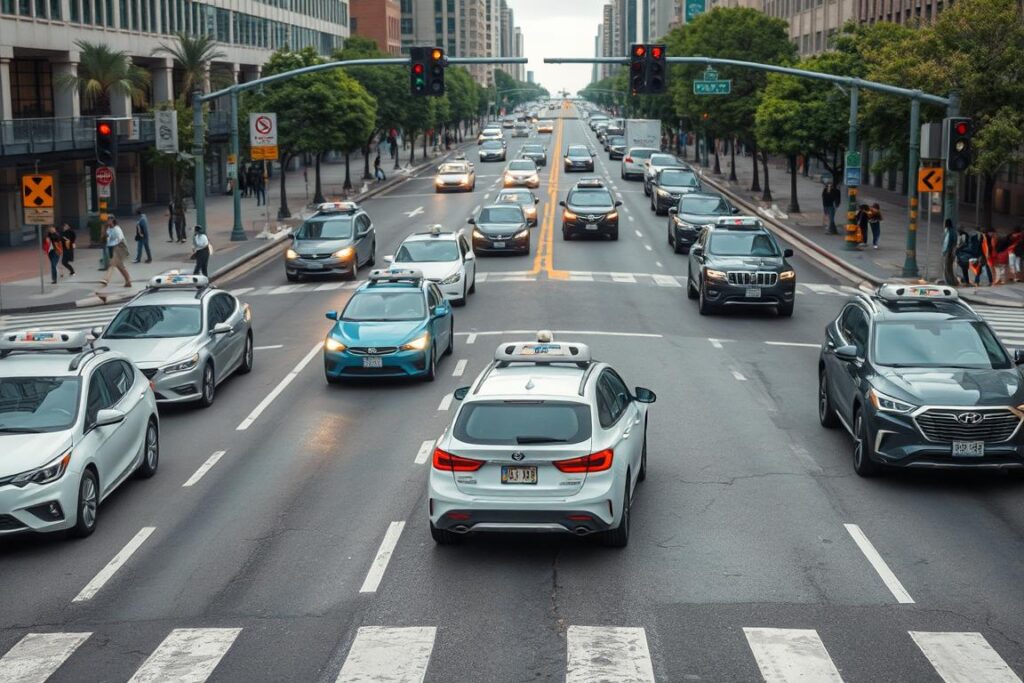
The development and deployment of autonomous vehicles illustrate the complex interplay of technology, regulation, and societal adaptation. Companies like Waymo, Tesla, and Cruise have made significant technological progress, with fully autonomous taxis now operating in several cities. However, regulatory frameworks, insurance models, and public acceptance continue to evolve as society adapts to this transformative technology.
The autonomous vehicle industry demonstrates how technological capability often outpaces societal readiness, requiring thoughtful approaches to implementation that address safety concerns, liability questions, and workforce transitions for current drivers.
Public Engagement and Digital Literacy
Broad public engagement in shaping AI’s development and deployment is essential for building trust and ensuring these technologies serve societal goals. Digital literacy programs that help citizens understand AI capabilities, limitations, and implications enable more informed participation in these important conversations.
Individual Preparation
- Develop adaptable skill sets
- Embrace lifelong learning
- Build AI literacy
- Practice critical evaluation of AI outputs
- Engage with ethical discussions
Organizational Strategies
- Invest in workforce reskilling
- Develop responsible AI principles
- Create human-AI collaboration models
- Establish ethical review processes
- Foster inclusive AI development
Policy Approaches
- Develop risk-based regulations
- Support AI safety research
- Invest in education infrastructure
- Create social safety nets for transitions
- Promote international cooperation
Future Predictions for the Age of AI (2030-2050)
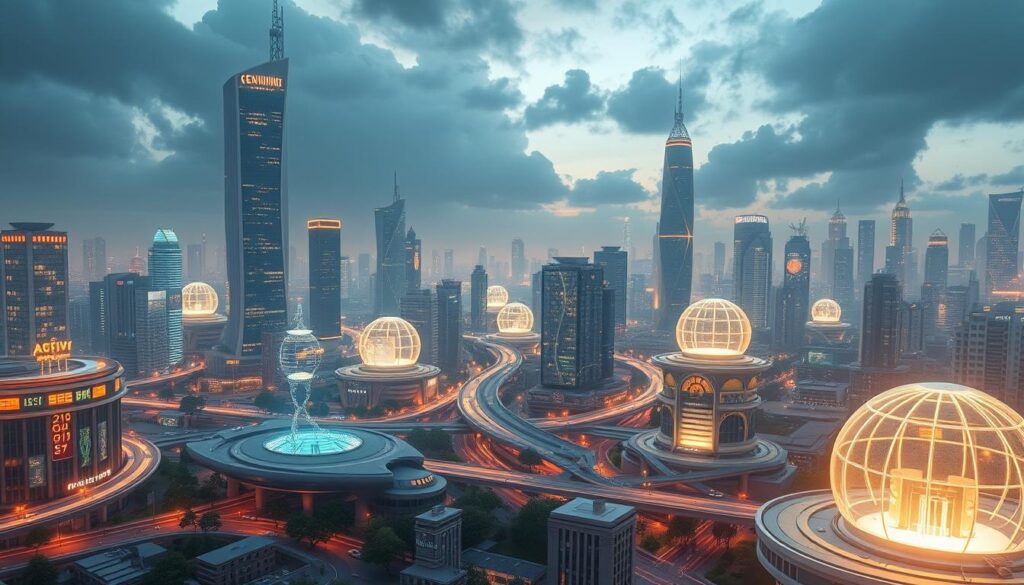
Economic Transformation
By 2030, AI is projected to contribute up to $15.7 trillion to the global economy, according to PwC analysis. This value creation will come through productivity improvements (automating routine tasks, enhancing decision-making) and consumption-side effects (increased product quality, personalization, and affordability).
Industries like healthcare, financial services, retail, and manufacturing will see the most significant transformations. The McKinsey Global Institute estimates that about 70% of companies will adopt at least one type of AI technology by 2030, though less than half will fully integrate AI across their operations.
Healthcare Revolution
By 2040, healthcare will be transformed by AI-enabled precision medicine, predictive diagnostics, and personalized treatment plans. AI systems will continuously monitor health data from wearable devices, environmental sensors, and genomic information to predict and prevent disease before symptoms appear.
Drug discovery timelines will shrink dramatically, with AI designing and testing thousands of potential molecules in silico before laboratory validation. Virtual health assistants will provide primary care guidance, monitoring chronic conditions and coordinating with human healthcare providers for complex cases.
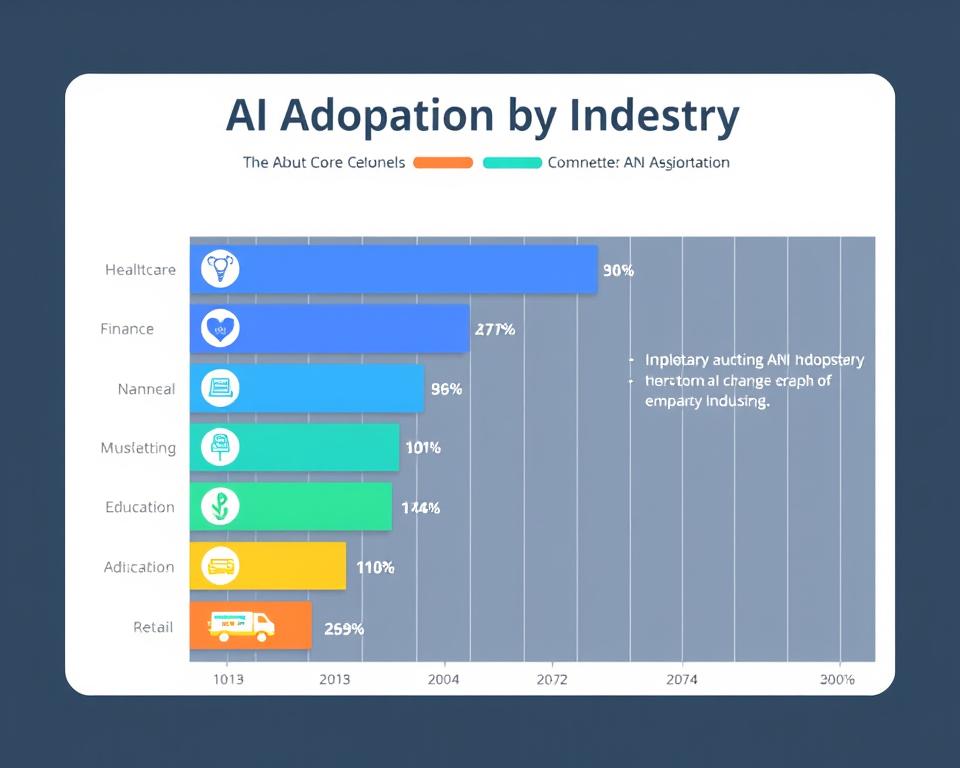
AI adoption rates across major industries, with healthcare and financial services leading implementation
Human-AI Collaboration
By 2050, the relationship between humans and AI will evolve into a deeply collaborative partnership. Rather than replacing humans, advanced AI systems will function as cognitive partners, enhancing human capabilities and enabling new forms of creativity, problem-solving, and scientific discovery.
Physicist Max Tegmark describes this period as “Life 3.0,” where the boundaries between human and machine intelligence become increasingly fluid. Brain-computer interfaces may enable direct neural connections to AI systems, while embodied AI in robotics will allow for more natural physical collaboration.
“The question is not whether machines will be smarter than humans, but how humans and machines will become smarter together.”
Governance Challenges
As AI capabilities approach and potentially exceed human-level intelligence in more domains, governance challenges will intensify. International cooperation on AI safety, security, and beneficial use will become increasingly critical. New institutions and frameworks may emerge to manage the global commons of advanced AI systems.
The period from 2030-2050 will likely see the establishment of robust verification systems for AI outputs, international treaties on autonomous weapons and surveillance, and potentially new forms of democratic participation enabled by AI systems that can process and synthesize diverse public input.
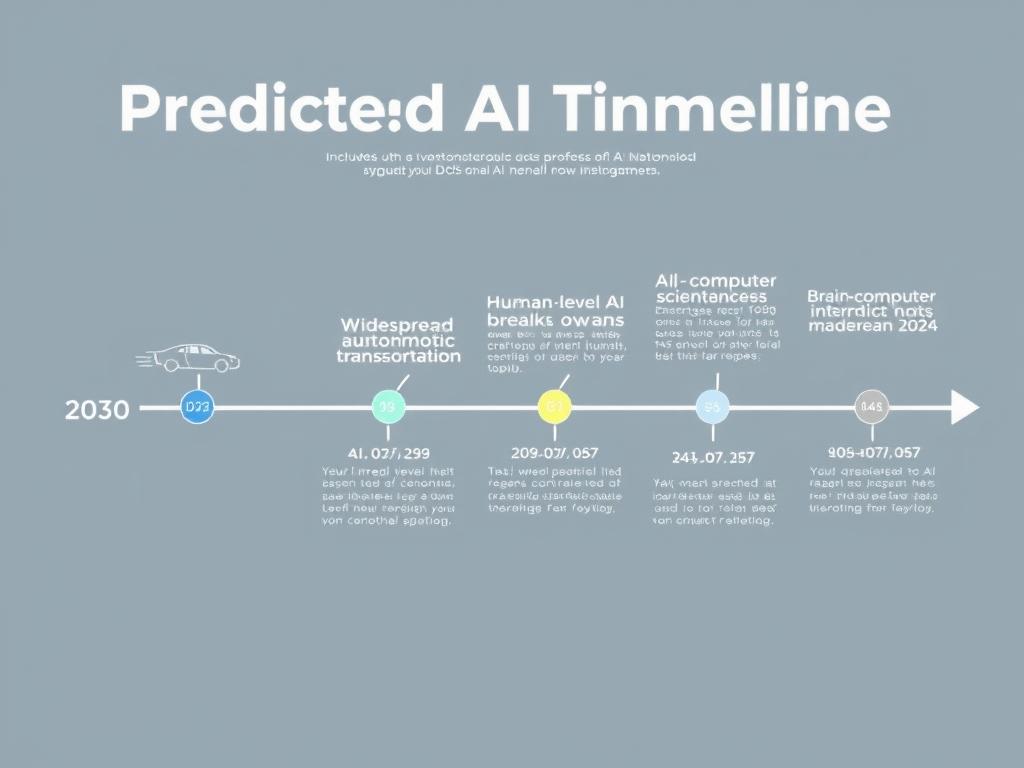
Navigating the Age of AI: Conclusion
The Age of AI represents one of the most significant technological and societal transformations in human history. As artificial intelligence continues to evolve from narrow applications to more general capabilities, its impact will be felt across every domain of human activity—from how we work and learn to how we create art and advance science.
The path forward requires thoughtful navigation of complex ethical, governance, and adaptation challenges. By approaching these issues with foresight, inclusivity, and a commitment to human flourishing, we can shape an Age of AI that amplifies human potential rather than diminishing it.
As we stand at this pivotal moment, the choices we make today about how we develop, deploy, and govern AI technologies will echo far into the future. The Age of AI offers unprecedented opportunities to address humanity’s greatest challenges—if we have the wisdom to harness its potential responsibly.
Frequently Asked Questions About the Age of AI
When did the Age of AI begin?
While artificial intelligence has been developing since the 1950s, most experts place the beginning of the true “Age of AI” in the early 2010s. This period saw the convergence of big data, improved algorithms (particularly deep learning), and unprecedented computing power that enabled practical AI applications at scale. The breakthrough performance of deep learning systems in the 2012 ImageNet competition is often cited as a pivotal moment that launched the current AI revolution.
Will AI replace human jobs?
AI will certainly transform the labor market, automating some existing roles while creating new ones. Research from the World Economic Forum suggests that while 85 million jobs may be displaced by automation by 2025, 97 million new roles may emerge that are better adapted to the new division of labor between humans, machines, and algorithms. The key challenge is managing this transition through education, reskilling, and social policies that support workers through the change.
How can I prepare for the Age of AI?
Preparing for the Age of AI involves developing both technical and uniquely human skills. Technical literacy about AI concepts and applications is valuable across all fields. Equally important are skills that complement AI capabilities: creative thinking, emotional intelligence, ethical reasoning, and complex problem-solving. Adopting a mindset of continuous learning and adaptability is perhaps the most important preparation, as the pace of change will require ongoing skill development throughout your career.
Is artificial general intelligence (AGI) possible?
Most AI researchers believe that artificial general intelligence—AI that can perform any intellectual task that a human can—is theoretically possible, though opinions vary widely on the timeline. Surveys of AI experts show median estimates ranging from 2040 to 2075 for achieving human-level AGI, with significant uncertainty. The path to AGI will likely require fundamental breakthroughs in areas like causal reasoning, common sense knowledge, and perhaps entirely new algorithmic approaches.
